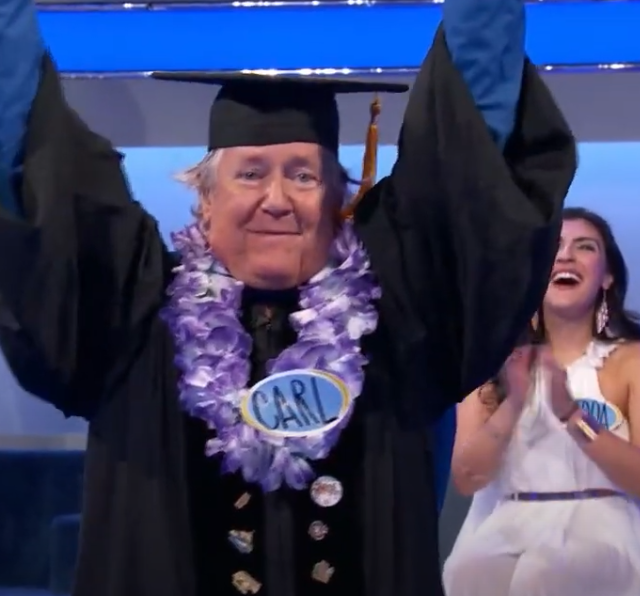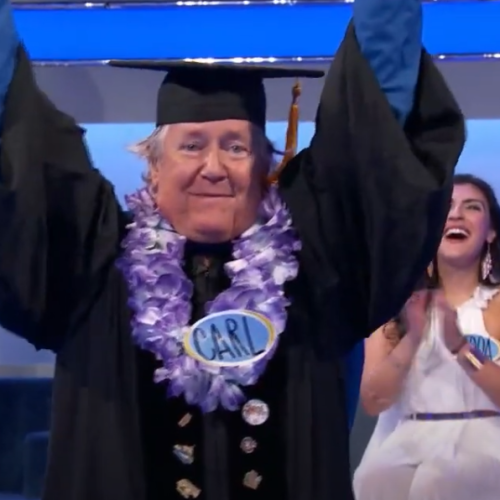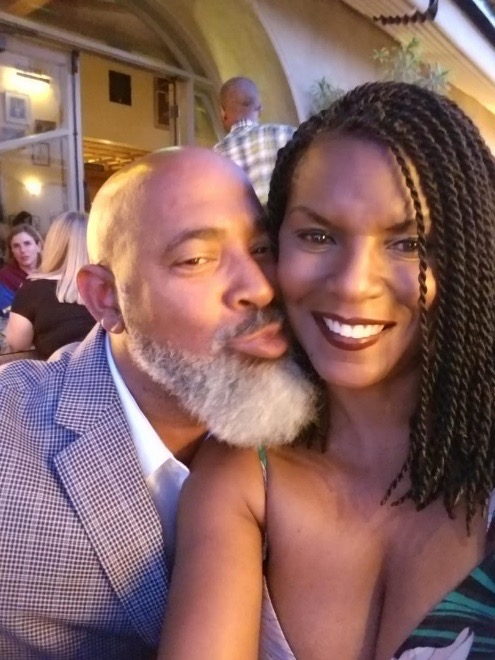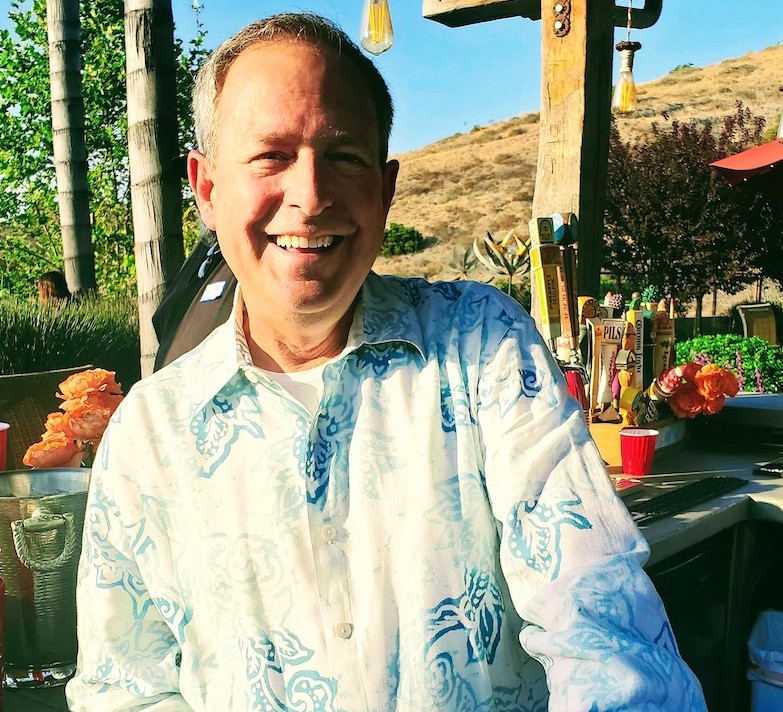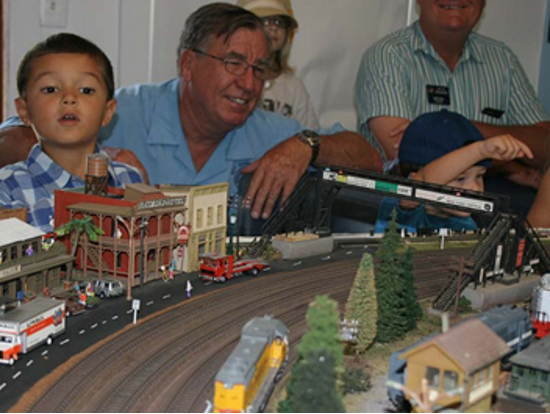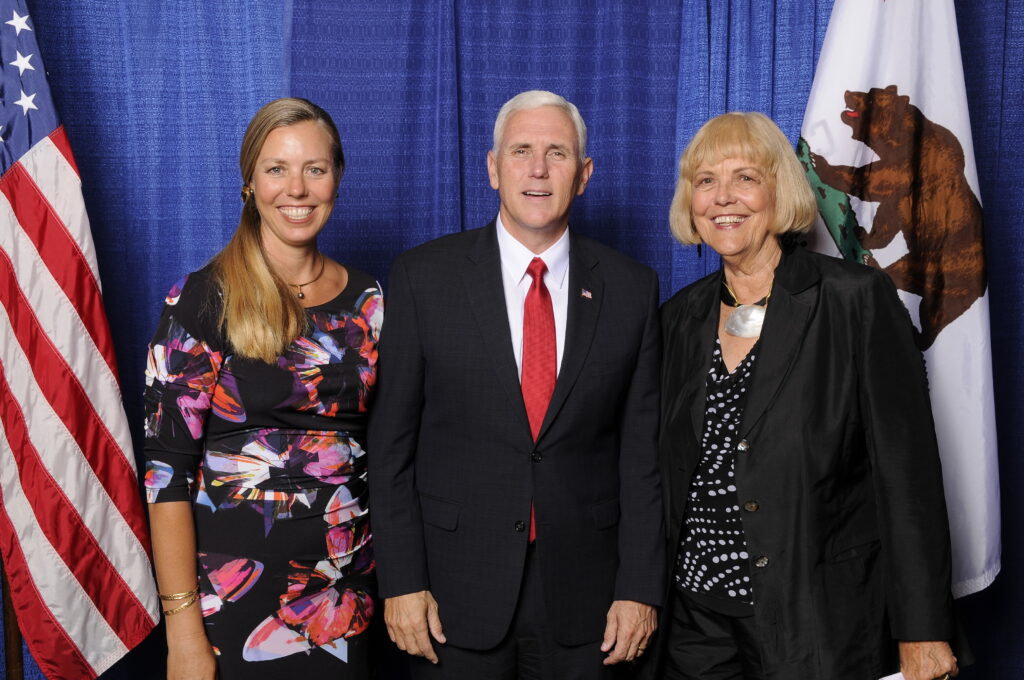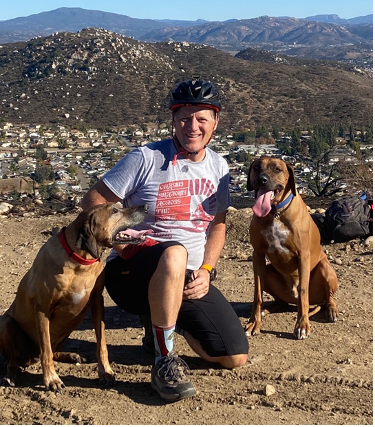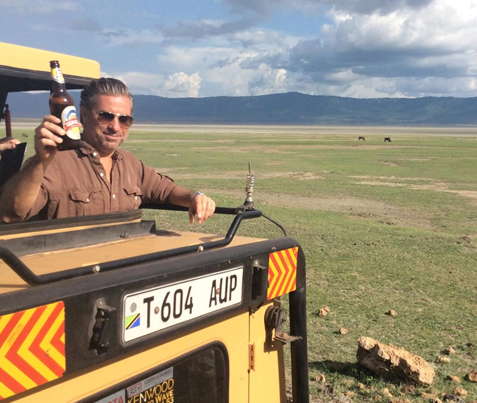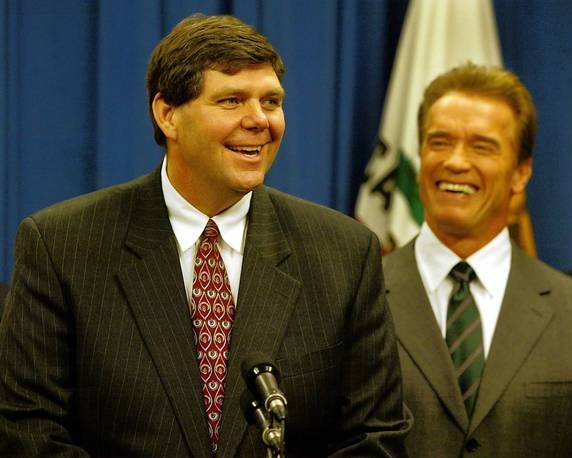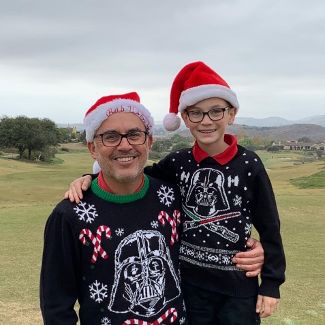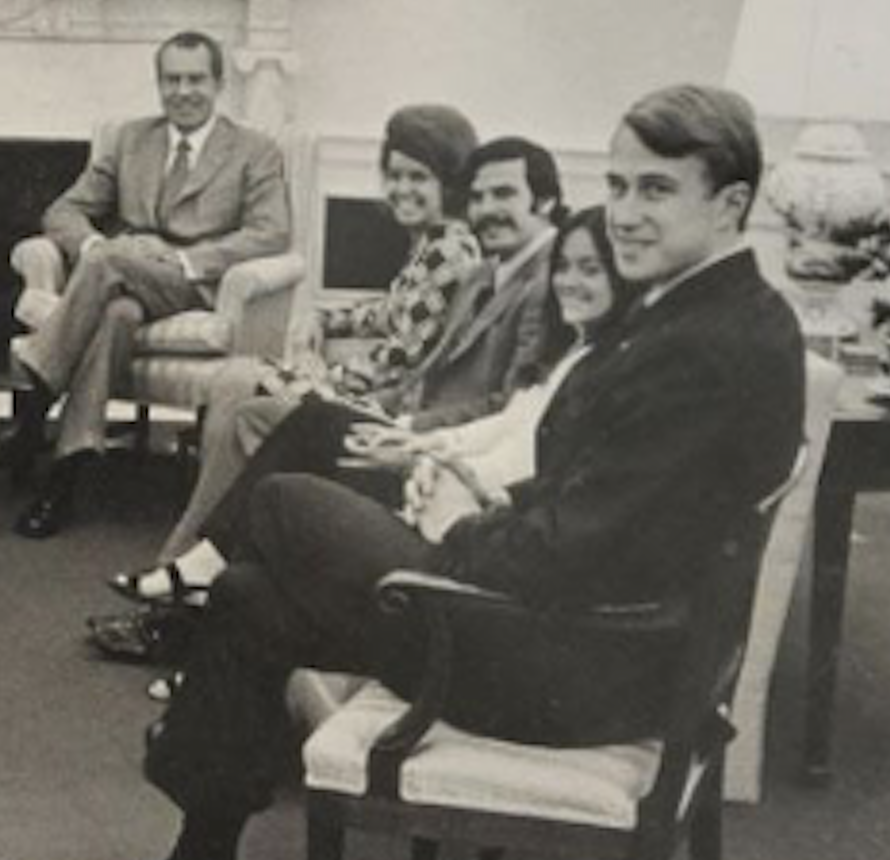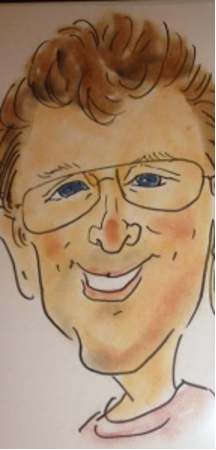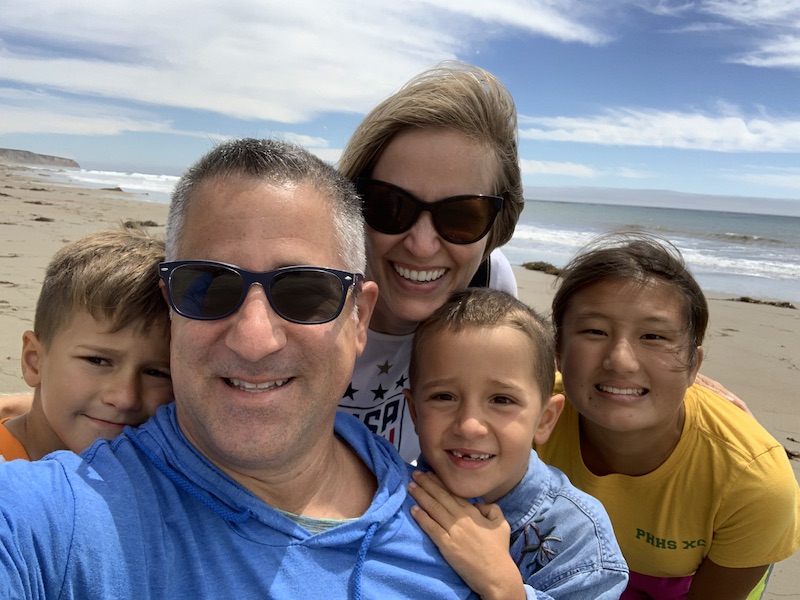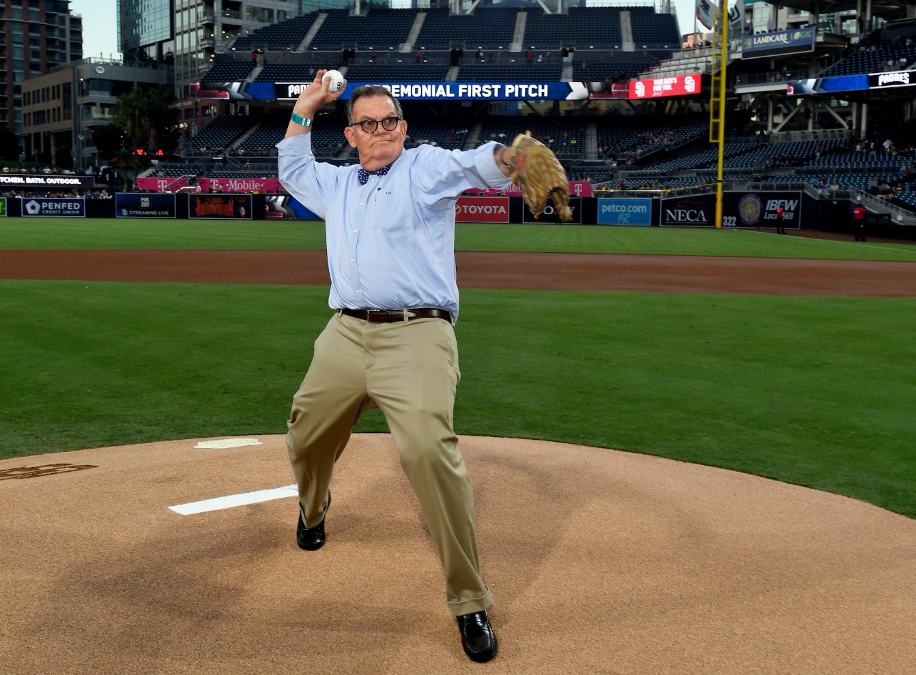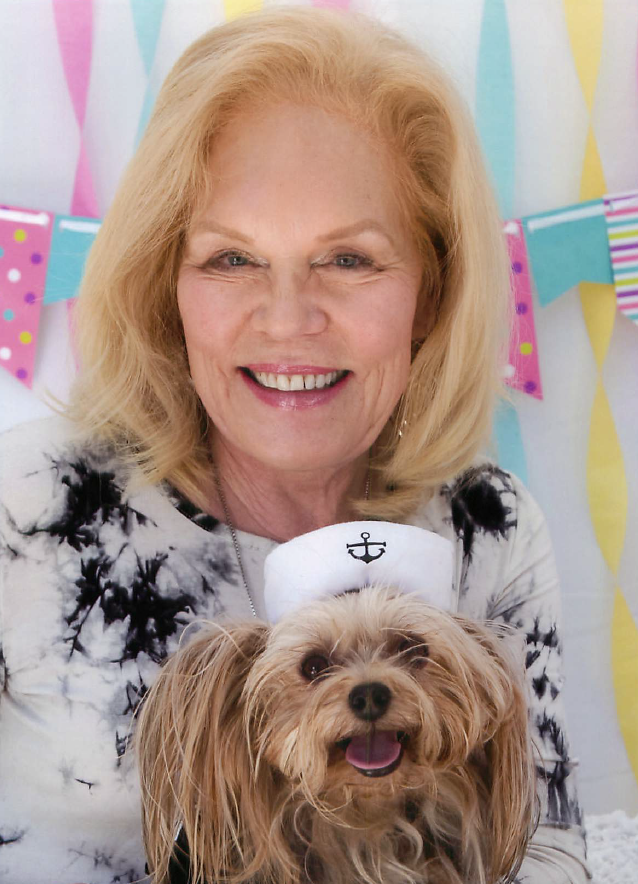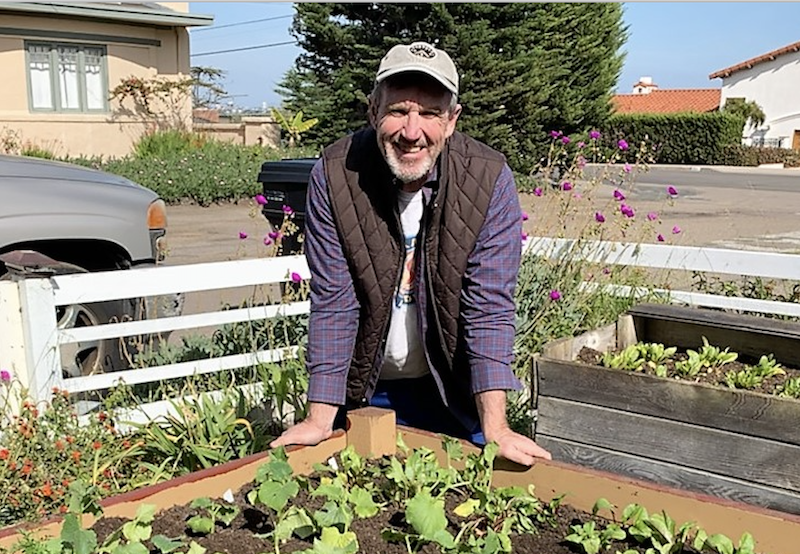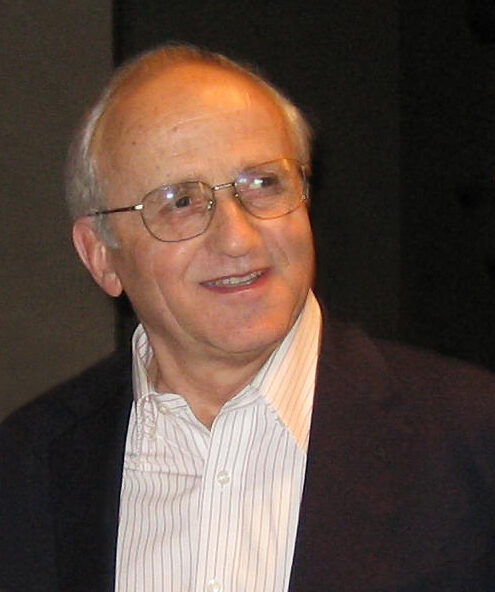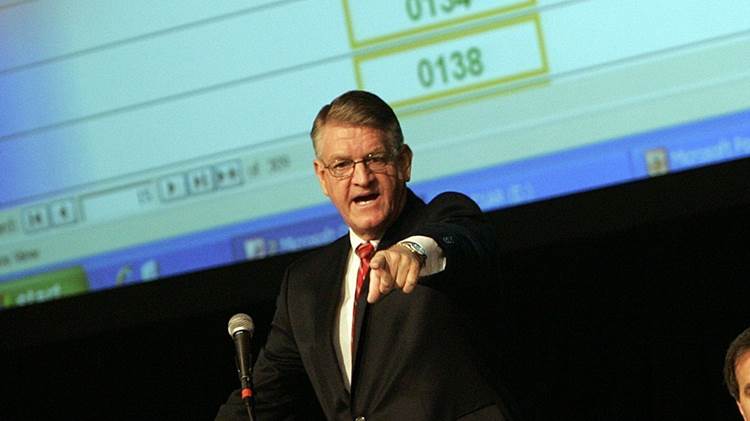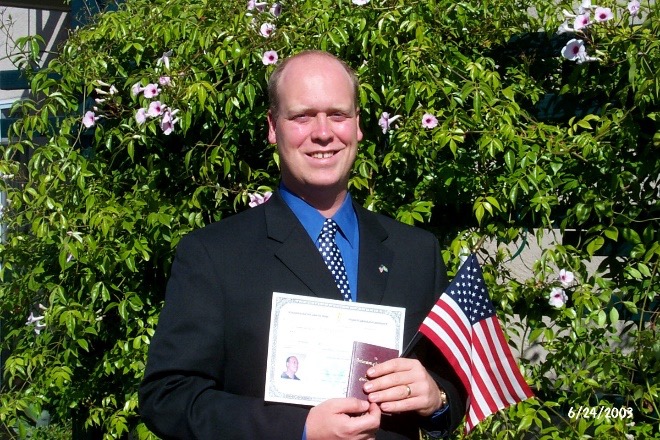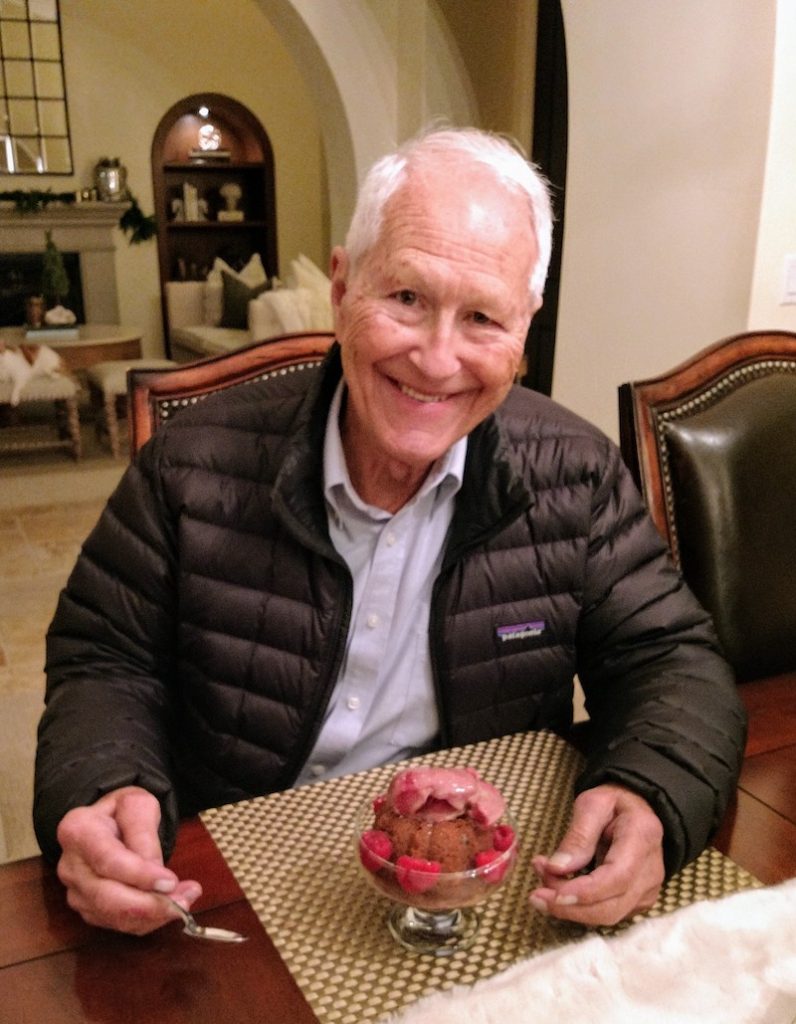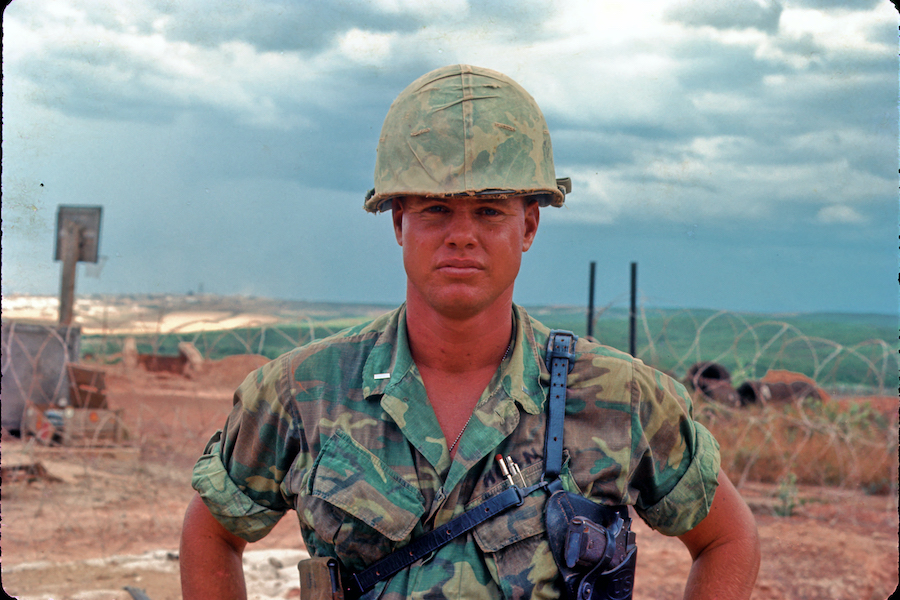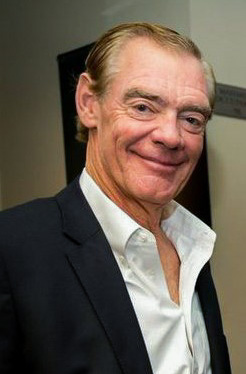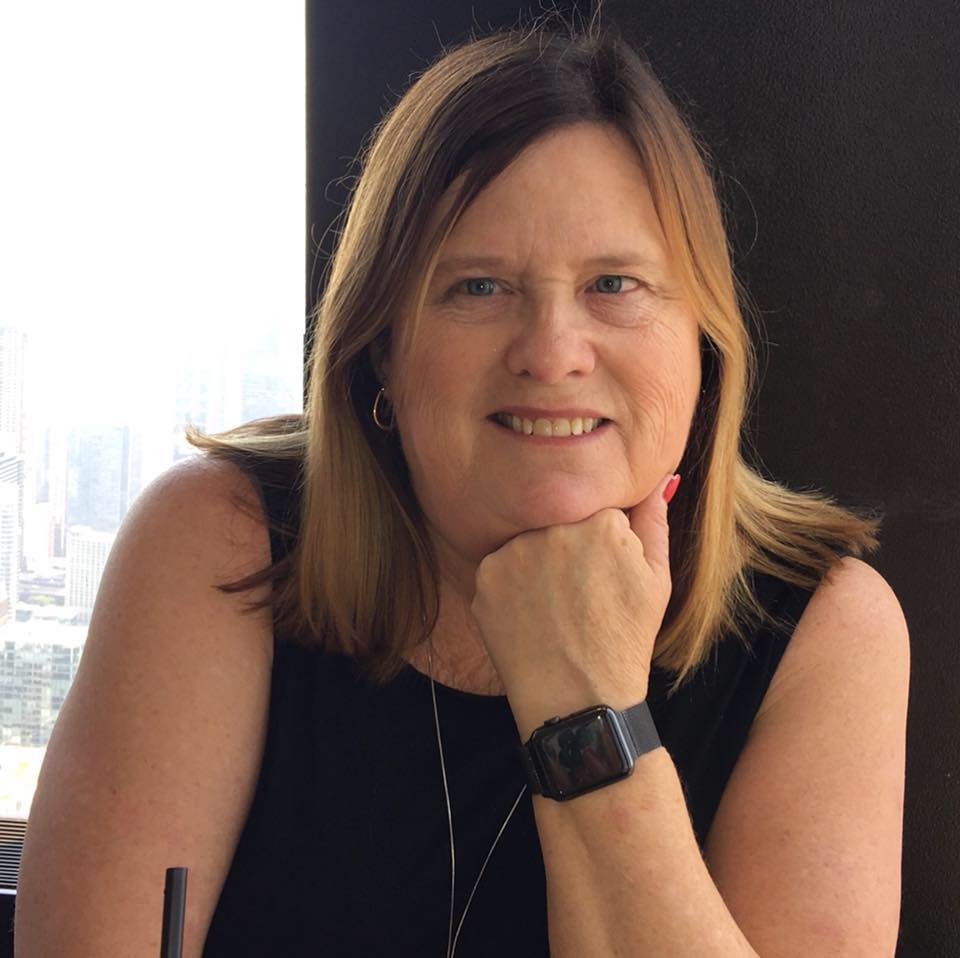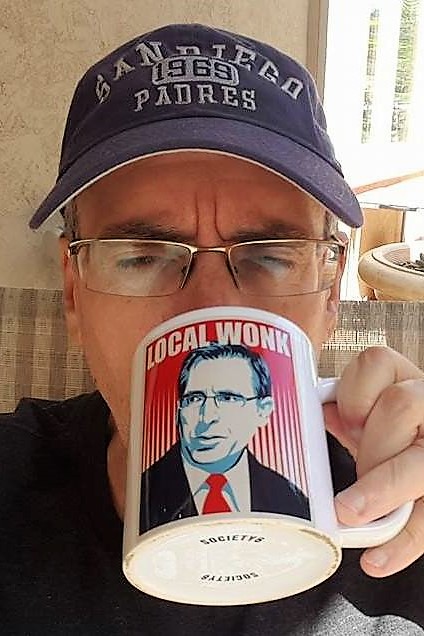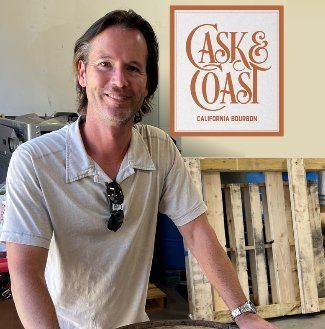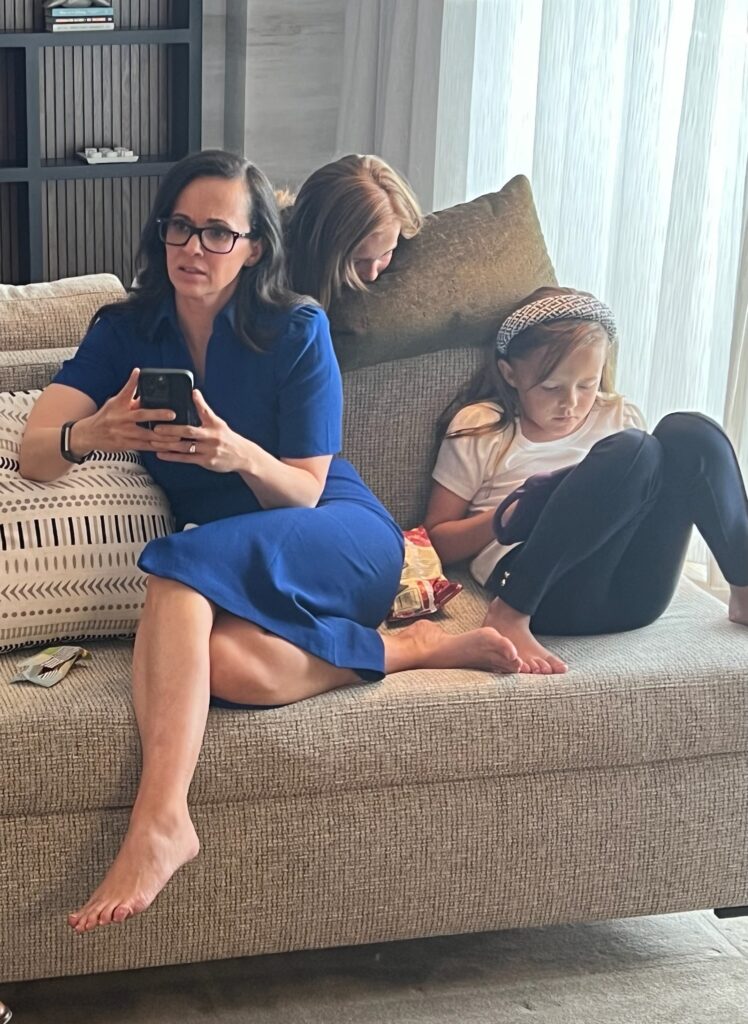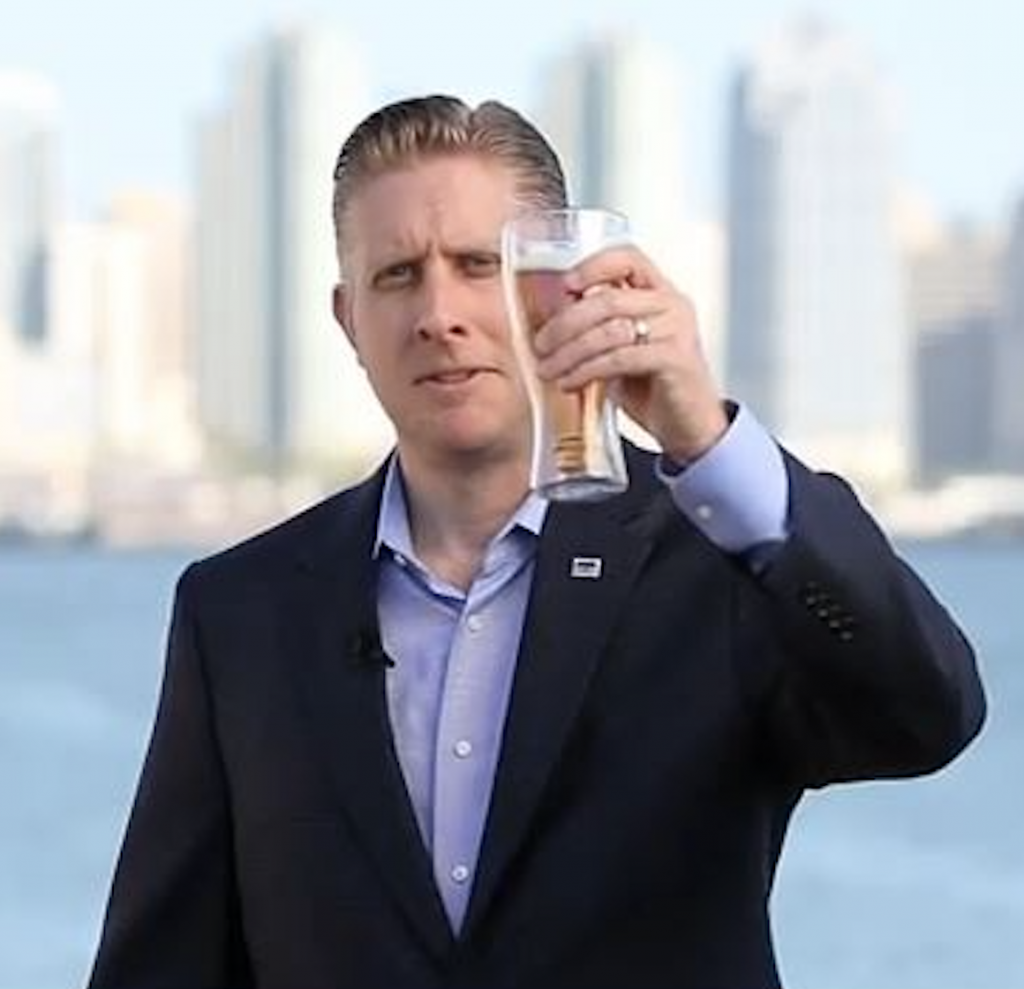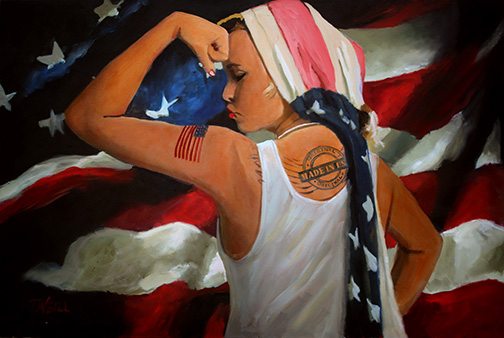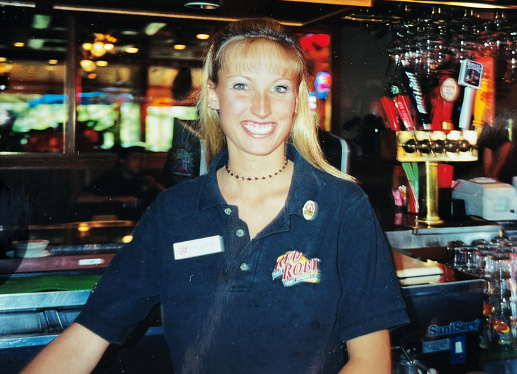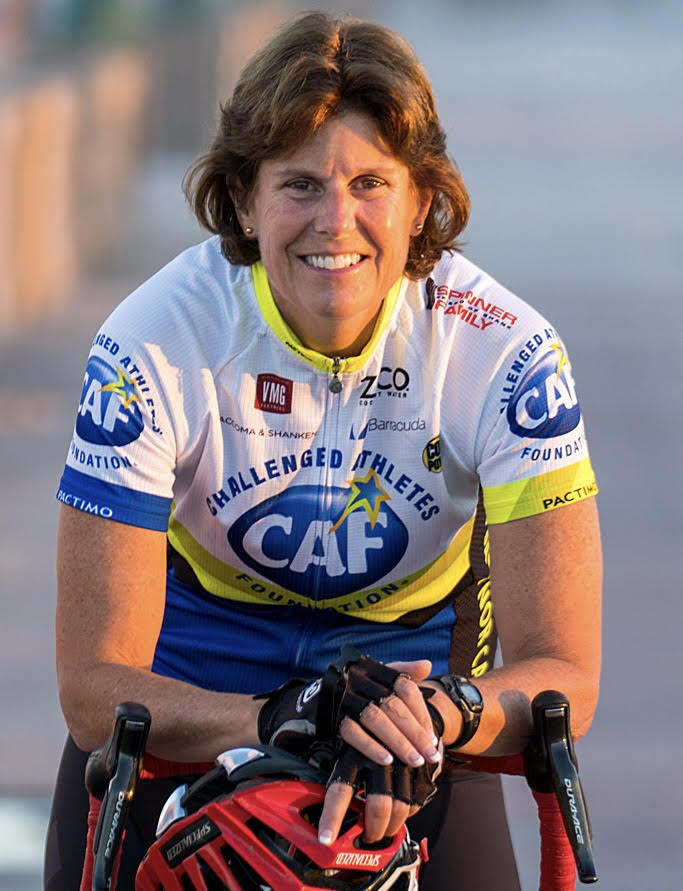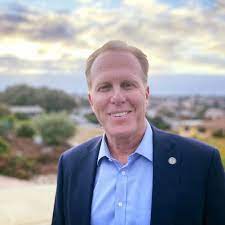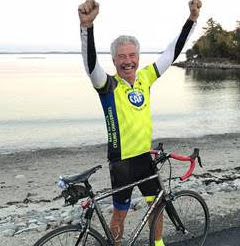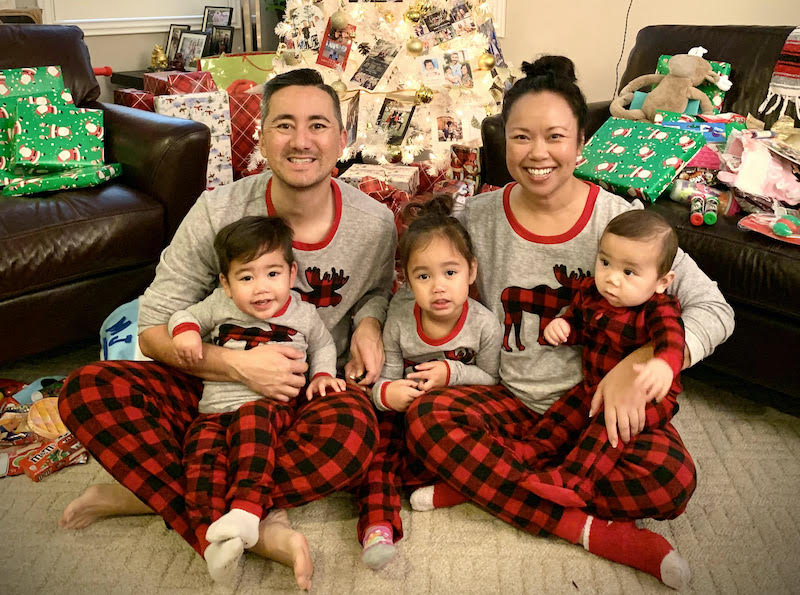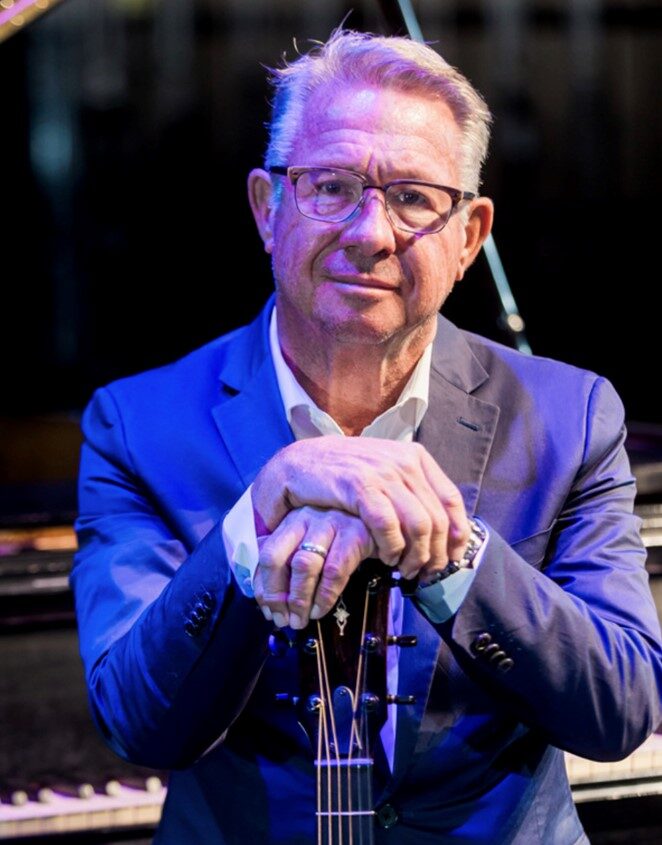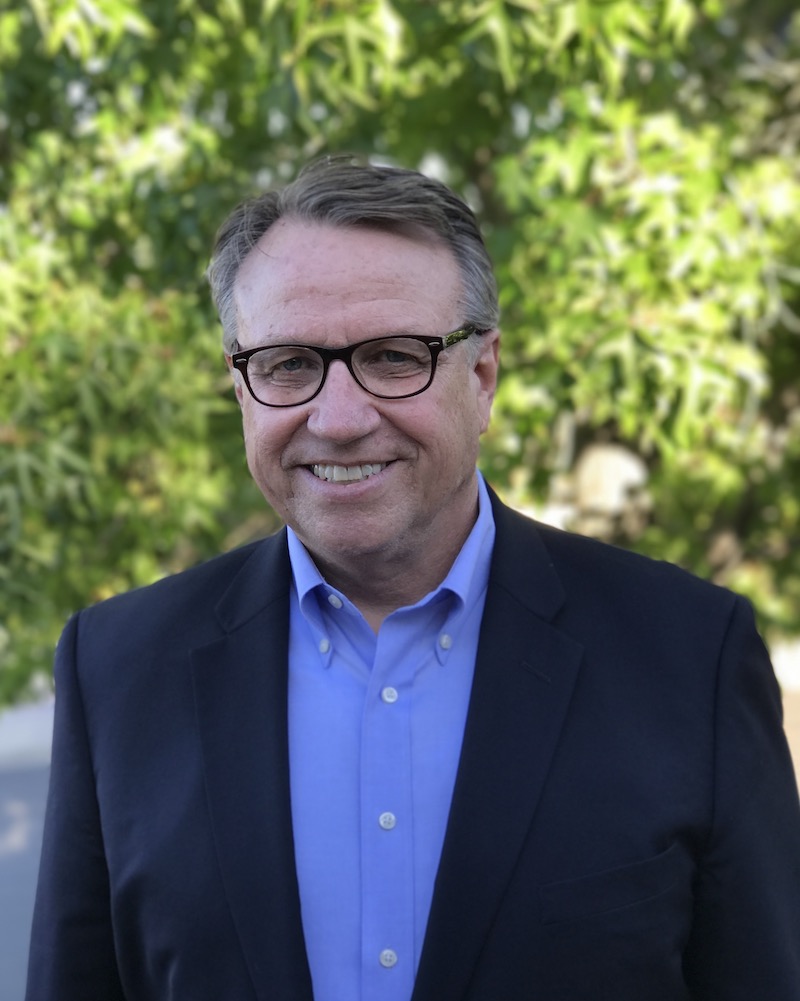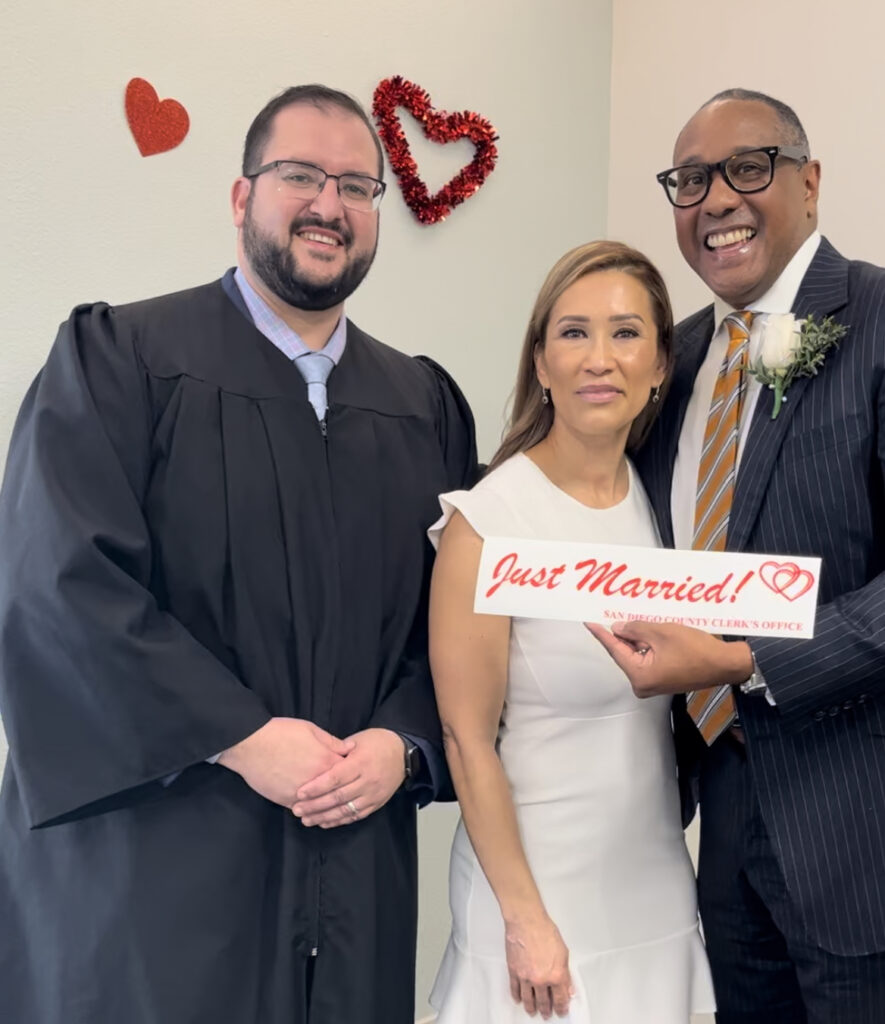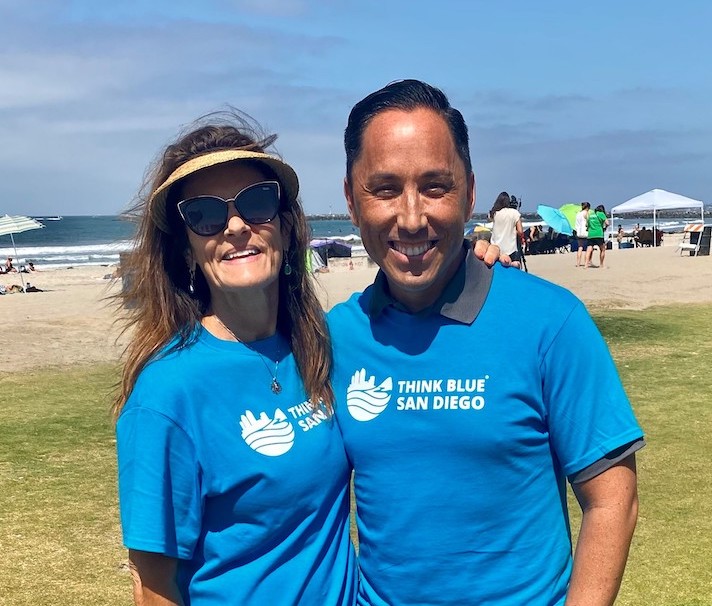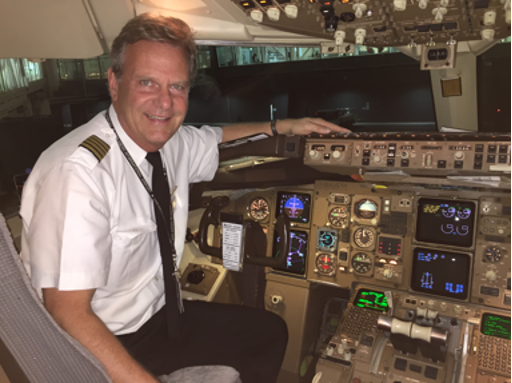Edgy Interview: Carl Luna
Dr. Carl Luna is a political scientist, civic educator, and all-around “democracy whisperer” whose mission is to get San Diegans talking to each other without throwing food. As Director of the Institute for Civil Civic Engagement at the University of San Diego, Carl helps students, leaders, and communities rediscover the lost art of civil discourse. He’s spent decades untangling the threads of American politics for audiences ranging from freshmen to mayors to the occasional confused journalist. Known for his quick wit and habit of slipping stand-up worthy one-liners into otherwise serious lectures and interviews, Carl makes civic engagement entertaining. Whether moderating forums, writing columns, or gently reminding us that democracy works better when we’re polite, he remains one of California’s most quotable voices on politics and civic life.
When you were a child, what did you want to be when you grew up?
A psychiatrist. Don’t ask me why.
Who should play you in your biopic?
George Clooney or John Lithgow.
How has teaching political science changed over the years?
Applications of technology — from the internet to PowerPoint to online class platforms to AI — affect the process and delivery of my courses, but the content remains basically the same: teaching everything in the context of what I discussed above as the true meaning of politics. Teaching American government and politics has become more challenging, though, because so much of the way we used to govern – political parties and elections, coalition building and compromise in congress, median voter theory – no longer apply. I also find myself telling my students “We used to do it this way but…”. Things political science used to teach about that happened in other places – creeping authoritarianism, rising political violence, corruption at the highest levels of government — are increasingly happening here. As the editor of Foreign Affairs wrote in an essay eight years ago, a Latin American friend of his, looking at the erosion of American democracy, said, “We’ve seen this movie before… just not in English.”
What book — fiction or non-fiction — influenced you most? Fiction:
The Screwtape Letters by C.S. Lewis. The single best short volume on good and evil. Non-Fiction – Jarred Diamond’s Guns, Germs and Steel, which shows how biology, geography, and technology overwhelm the day-to-day politics we tend to focus on in shaping human history.
What’s the most important change in San Diego politics over the last decade?
The completion of the total domination of San Diego City politics by the Democrats – and the failure of Democrats to then capitalize on this advantage to effectively implement policies dealing with housing, homelessness, and middle-class job growth.
If you could go back in time, which former President would you like to chat with and what’s the topic?
Abraham Lincoln to talk about his post-civil war vision versus what actually happened with Reconstruction.
How would you rate Governor Gavin Newsom’s chances to win the 2028 presidential nomination?
Normally I wouldn’t give him much of a chance at all. His track record as governor in California is limited, his political “vision,” beyond being the new Democratic media anti-Trump, is ill-defined, and politicians from California — like those from New York and, to an extent, Texas — generally aren’t well liked beyond their state/district borders. But… Newsom is currently the only governor-weight gravitas currently in the potential running. After him comes Ocasio Cortez and Buttigieg.
Do you think domestic political violence is worse than, say, in the 60s? Tell us why or why not.
No, it’s not worse — but it soon could be. In the 1960s and 1970s political violence was mostly confined to small groups of radical domestic terrorists (Terrorism: the targeting of violence towards civilian populations to achieve political goals), like the Weather Underground, and was not supported by broad swarths of the public. Yes, there were major political assassinations but these perpetrators and acts lacked (at least overt) mainstream political support and there was broad national abhorrence to the acts. Over the past four years we’ve seen several attempted and accomplished political assassinations of elected officials and political activists. We’ve also seen the unprecedented storming of the US Capitol building with loss of life. We do not see the nation coming together across the political divide to uniformly condemn these acts of violence regardless of the supposed partisan allegiance of the perpetrators. This creates the condition for what’s called “stochastic terrorism”: polarized rhetoric, demonization of opponents, and the perceived tacit acceptance (in lieu of overt denouncement) of violence by perpetrators associated with “our side,” together create the condition where further acts of violence by random individuals becomes more likely. The crisis occurs when this results in one or both sides overtly arming up to protect themselves from the other, then escalating into real open conflict.
If you could repeal one law, which would it be and why?
The laws that allow shell corporations. If a) corporations are individuals before the law; and b) the 13th Amendment prohibits one individual owning another, shell corporations should not be possible. They primarily provide for avoidance of transparency and undermine rule of law. My view is, unless you can produce a real, living human being as owner of a company or corporation, that entity is now abandoned property which can be seized by the state and sold at public auction to actual people.
Who is your favorite artist – any medium – and what makes them special for you?
The Impressionists in general and Claude Monet in particular. One of my favorite places is the top floor of the Musee D’Orsay surrounded by life and light celebrated in brushstrokes. That, and I always appreciated Monet’s ability to turn another franc with yet another water lily canvas.
What was the first concert you attended and how did it make you feel?
Dave Mason, UCSD, 1978. Made me feel energized and somewhat claustrophobic (I’m not big on crowds).
What was your favorite musical genre as a teenager and what are you listening to now?
Then: what’s now called “Classic Rock” but was cutting edge back then – Fleetwood Mac, Creedence Clearwater Revival, Cream (and even some Simon and Garfunkel to mellow down to.) Today: alternative rock from Bastille to Billie Ellish; also, classic French pop (Joe Dasein, Charles Aznavour).
What’s your favorite local restaurant and what’s so special about it?
Too difficult to pick. Parc Bistro for French, Herb & Wood for California-Mediterranean. The list goes on.
What’s been your favorite sports moment?
The first San Diego Wave game I attended as a season ticket holder back when they were just starting out at USD Torero stadium. It was great to be there at the beginning of what’s grown into a great San Diego sports franchise, and it’s great to still be season ticket holders.
Around CERC’s offices we call you “The King of the Bon Mot.” What do you attribute that talent to?
Merci. I’m the father of four daughters so I’d chalk it up to lots of experience with making Dad jokes.
What are the best and worst things about living in Coronado?
Best: It’s a great community to live in, raise kids in and participate in civic life in. Worst: Affordability (my kids will never be able to buy here as with most of the kids who go to school here or people that work at the school as well). And that Coronado is considered unique when every neighborhood in the region should be as safe, well-maintained and pleasant to live in.
Tell us about your time in Russia.
It was the adventure of my lifetime. We went there in 1999/2000 – my wife, four daughters ages 5-14, and my mother-in-law. You get instant street cred in Russia when you bring your own babushka. I was lecturing on politics as a senior Fulbright fellow in Nizhny Novgorod (about 400 klics west of Moscow) at the state university and school of economics.
We were there for 10 months, made numerous friends, including our downstairs neighbor Alexi who got married that spring, invited us all to the wedding and had us sit at the head table. Our daughters got to see and live in a world very different from home and got to take skating lessons from a Russian Olympian and ballet lessons from a former Bolshoi dancer! Our family accounted for seven of the 50 total Americans in the city of two million and we apparently stood out enough going everywhere in our North Face coats and Jansport backpacks that everywhere we went people knew we were “that American family” and treated us well.
One night we hopped on the trolley we’d always taken to go home from dinner at the apartment of my “Man Friday,” a delightful young man the university had assigned to help me and the family out with life in Russia. The trolley, however, which always turned left at a main road turned right and next thing we knew we were heading to the outskirts of the city at 11pm. The other Russian passengers saw our consternation and one who knew English let us know the trolley was “going home.” It was on its last run and heading to the trolley barn. The passengers got the conductor and they all worked together to come up with a plan to get the dumb American family back home. The trolley conductor waved down a bus heading in the direction of our apartment and the bus driver drove us to our front door. I couldn’t imagine that happening here in the US.
But the most formative experience of my time in Russia was watching Putin rise to power. NYE 2000 we are at a midnight dinner at Alexi’s celebrating the New Year in Russian tradition. President Boris Yeltsin comes on TV to announce his resignation which elevated Putin, then prime minister, to acting President. Yeltsin was facing impeachment and imprisonment for corruption. Putin pardoned Yeltsin then rigged the spring election to become President. By May, Putin had rolled up most of the opposition parties and media and was forcing the billionaire oligarchs to either submit or flee. I watched Putin take down Russia’s nascent democracy and learned just how fragile any democracy is. You can ultimately take a democracy down in six months or so as long as you don’t take long lunches or sleep in on the weekend. That experience has informed my work in civic engagement over the past quarter-century. What I couldn’t have imagined in 2000 was that I could end up seeing some of the same trends I saw in Russia happening here.
What advice do you have for young people who might want to get into politics?
Do it. Politics comes from the Greek: Poli, the many, and tics as in blood sucking insects. Pause for laughter… I really hate that joke. For the Greeks politics was the most noble pursuit of the individual, the service of the polis, the community, in search of the highest good for all. All of one’s personal attainments in business or society paled before the honor bestowed by those serving the community. Indeed, politics means turning the many, the poli, into the community, the polis. So, yes, I encourage my students to get into politics. You can’t avoid politics – it affects everyone regardless of their political participation. So participate and make society work for everyone.
You were on Let’s Make A Deal and gave a shout out to your students. What was that experience like?
Just fun. The producers reached out and asked if I wanted to be on, so I figured “what the heck.” It was still during Covid, so contestants and host Wayne Brady were kept distanced, but it was fun to be on set! Mr. Brady was extremely nice and welcoming to the contestants. I didn’t win anything but being there was a win onto itself.
Take us through “Carl Luna’s perfect day.”
There is no one perfect day as I’ve had the good fortune to have many. What they all have in common is that I get to spend the day – be it camping and hiking in Yosemite, doing Disneyland, traveling abroad, road tripping across America or taking my granddaughter to storytime — with my family.
If you could return to a place you’ve already visited, where would you go and why?
A toss-up between Paris and Venice. They are my favorite cities but are very different – the world’s most vibrant metropolis versus a living museum. If it’s for less than five days, it’s Venice over Paris.
What would you change about yourself?
I wish I was more focused on completing my long-term projects (like the books I’ve outlined but not completed).

